ALUM

HONORINGOURLEGACY: CELEBRATINGWILBERFORCE ALUMNI

Wilberforce University NOTABLE ALUM
This booklet proudly celebrates the distinguished and notable alumni of Wilberforce University trailblazers, leaders, and changemakers who have shaped history and continue to inspire future generations. By remembering their achievements, we honor the legacy of excellence that defines our institution. Preserving and sharing our history is not just about the past it’s about empowering students today to dream boldly, lead confidently, and carry forward the spirit of Wilberforce into the future.
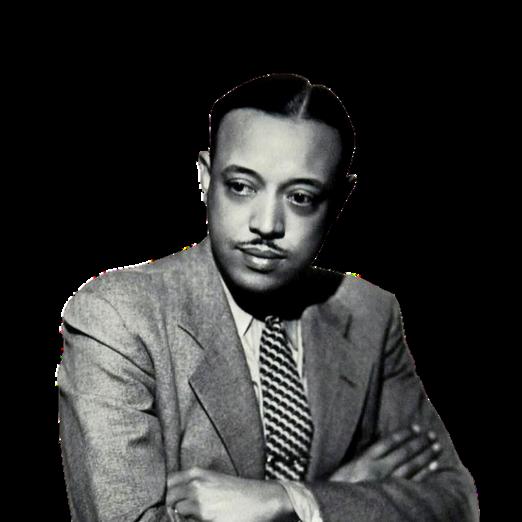
iam Grant Still t every man has o live his life in a at will bring him and happiness.

Let this booklet be a source of pride, reflection, and motivation for all who walk the halls of Wilberforce today.
Hallie Quinn Brown
Hallie Quinn Brown was a distinguished African American educator, orator, and social reformer whose early life was marked by migration from a family of formerly enslaved individuals to Canada and subsequently to Ohio.

In 1868, she matriculated at Wilberforce University, where she completed a Bachelor of Science degree in 1873. Her academic experience at Wilberforce was formative, cultivating her rhetorical and pedagogical skills that would become central to her lifelong activism.
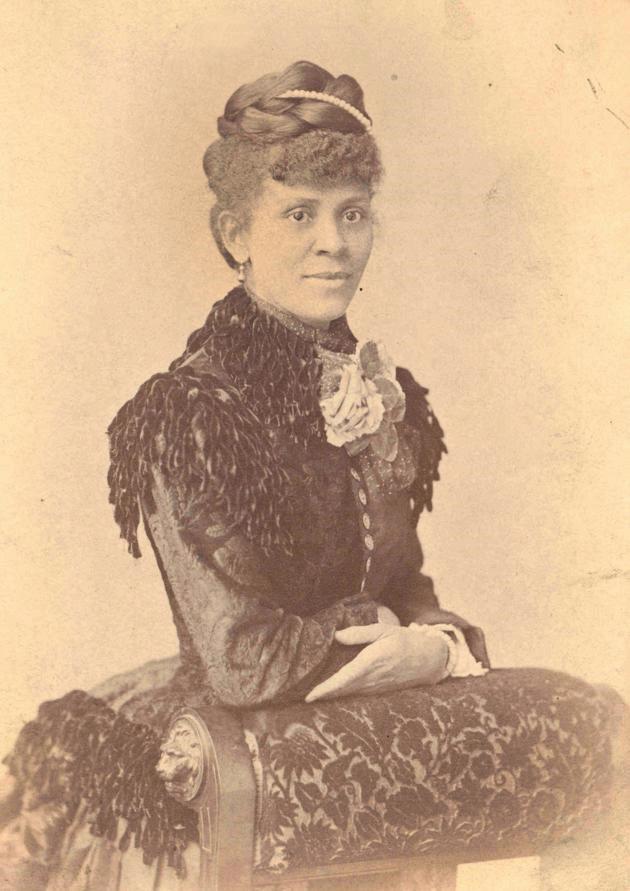
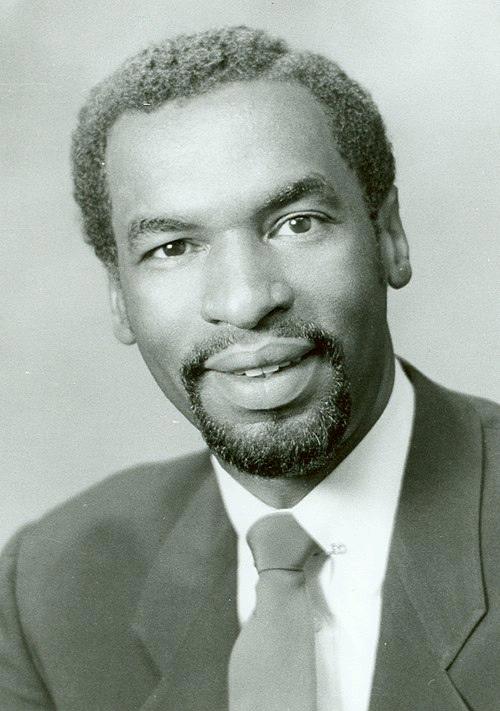
Floyd Flake
Activist, Pastor, Politician
Floyd Harold Flake is an American entrepreneur, ordained minister, and former legislator, recognized notably for his tenure as senior pastor of the Greater Allen African Methodist Episcopal Cathedral in Jamaica, Queens, New York a congregation exceeding 23,000 members—and for serving as the eighteenth president of Wilberforce University. Flake also matriculated at Wilberforce University, where he completed his undergraduate
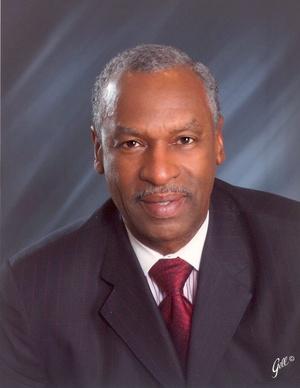
studies before pursuing graduate education, an academic foundation that informed his multifaceted career spanning religious leadership, business, and politics. He represented his constituency as a member of the United States House of Representatives from 1987 to 1997, where he engaged in policymaking on issues central to urban development, social justice, and economic empowerment.
Vernon E. Carter

A pioneering African American Lutheran minister, theologian, and civil rights activist; Carter’s courageous nonviolent protest against de facto segregation in Boston’s public school system stands as a seminal episode in the struggle for educational equity in the United States. His intellectual and ethical foundations were deeply shaped by his education at Wilberforce University. During his time at Wilberforce, Carter was immersed in a liberal arts environment rooted in the Black intellectual tradition and moral philosophy, where theological training and social consciousness were interwoven.
Carter went on to become a Lutheran minister, aligning his religious convictions with the moral imperatives of the Civil Rights Movement. He is most widely known for his 114-day protest in 1965, during which he camped outside the Boston School Committee Headquarters for 108 consecutive days. His silent vigil brought national attention to the systemic racial disparities in Boston’s public school system— disparities that had been largely ignored by Northern political and educational leaders.


Richard H. Cain Abolitionist
Richard Harvey Cain was a prominent American minister, abolitionist, and political leader who served as a United States Representative from South Carolina during the Reconstruction era, holding office from 1873 to 1875 and again from 1877 to 1879.
A distinguished alumnus of Wilberforce University, Cain’s academic formation profoundly shaped his theological and political convictions. Following the Civil War, he was appointed by Bishop Daniel Payne as a missionary for the African Methodist Episcopal Church in South Carolina, where he played a pivotal role in advancing religious organization and community development.

James H. McGee
Activist, Politician
James Howell McGee, an influential figure within the Ohio Democratic Party, was a distinguished alumnus of Wilberforce University, where his academic and civic foundations were cultivated. He notably served as the first African American mayor of Dayton, Ohio, and holds the distinction as the city’s longest-tenured mayor to date. McGee’s leadership exemplified the intersection of rigorous education and committed public service, reflecting the enduring impact of Wilberforce University’s role in shaping African American political leadership.
Raymond V. Haysbert
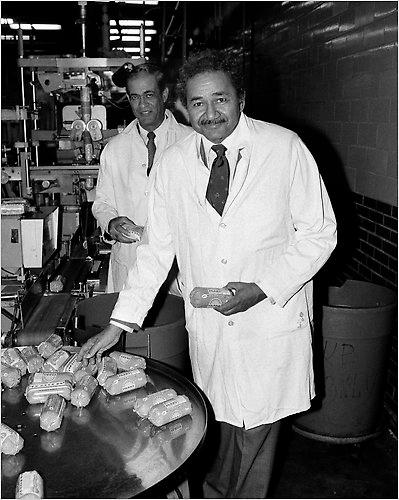

Raymond V. Haysbert Sr. was a distinguished American business executive and civil rights leader. Born in Cincinnati, Ohio, Haysbert earned a degree in accounting from Wilberforce. During World War II, he served with distinction as a member of the Tuskegee Airmen in Africa and Italy, embodying the legacy of Black military excellence. After the war, Haysbert returned to Wilberforce as an educator before embarking on a transformative corporate career.
Joining Baltimore’s Parks Sausage Company in 1952, he rose to CEO, expanding it into one of the largest African American–owned businesses in the United States. Throughout his life, Haysbert remained deeply engaged in civil rights and community leadership, serving as chairman of the Greater Baltimore Urban League until his death.
American Politician Selvena N. Brooks-Powers
Selvena N. Brooks-Powers proudly represents New York City’s 31st Council District. She is the first Black woman to serve as Majority Whip of the City Council and Chair of the Committee on Transportation and Infrastructure.

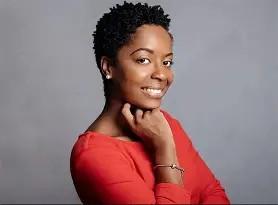
A lifelong resident of Southeast Queens and daughter of immigrant parents, Selvena has dedicated over 20 years to public service. She has championed equity in city resources, securing millions in funding for schools, parks, firehouses, and infrastructure.
Her advocacy includes $95 million for the 116th Precinct and ongoing efforts to establish a certified trauma center on the Rockaway Peninsula. Before being elected office, she led M/WBE outreach for the $13 billion JFK Airport Redevelopment and served as a communications director for SEIU’s Fight for $15 campaign. Her government experience spans the NYS Senate, NYC Mayor’s Office, and the first NYC Public Advocate’s Office.
Selvena is a proud graduate of Wilberforce University and holds a master’s degree in International Law from NYU.
Emma S. Connor Ransom (1864–1943) was a distinguished African American educator, reformer, and religious leader whose contributions to Black women's education and institutional development were deeply rooted in her affiliations with both the African Methodist Episcopal (AME) Church and the Young Women’s Christian Association (YWCA).
Wilberforce shaped Ransom’s theological grounding, intellectual discipline, and social consciousness. It was here that she cultivated the moral vision and civic commitment that would inform her later work in national women’s organizations and church leadership.
“Central to Ransom’s intellectual and moral formation was her education at Wilberforce University”
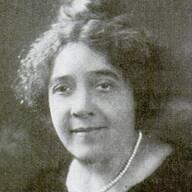
Emma S. Connor Ransom Activist, Educator
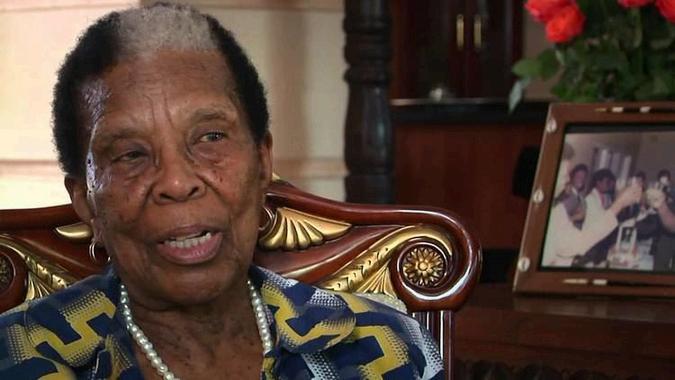
Charlotte M.
Maxeke
Charlotte Makgomo Maxeke was a pioneering South African religious leader, educator, and prominent social and political activist. She holds the distinction of being the first Black South African woman to obtain a university degree, earning a Bachelor of Science from Wilberforce University in Ohio in 1903. Furthermore, Maxeke was the first African woman to graduate from an American institution of higher learning.

Her academic achievement was a groundbreaking milestone during an era marked by racial and gendered barriers to education. Maxeke’s education abroad significantly informed her subsequent leadership in the African Methodist Episcopal Church and her activism for women’s rights, African self-determination, and the advancement of education and social welfare in South Africa.

Activist & Theologian
James Carroll Napier, an esteemed American businessman, lawyer, politician, and civil rights advocate from Nashville, Tennessee, was an alumnus of Wilberforce University, where his early education laid the foundation for his multifaceted career. Serving as Register of the Treasury from 1911 to 1913, Napier became one of only five African Americans to have their signatures affixed to United States currency. Appointed during President William Howard Taft’s administration, he was among four African American officials constituting what has been termed Taft’s “Black Cabinet.” Napier played a pivotal role in establishing civic institutions in Nashville that advanced economic empowerment and educational opportunities within the African American community.
James C. Napier
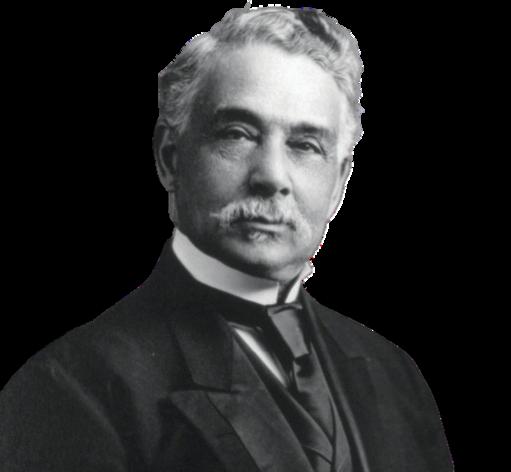
PoliticalActivist Bayard Rustin

Bayard Rustin was a pivotal figure in twentieth-century American political activism, whose leadership spanned civil rights, democratic socialism, pacifism, and LGBTQ advocacy. From 1932 to 1936, he pursued studies at Wilberforce University, where he focused on music, an early formative influence that would later inform his cultural and rhetorical sensibilities. As his political consciousness deepened, Rustin emerged as a key strategist and behind-thescenes architect of major social justice initiatives. Most notably, he served as the chief organizer of the 1963 March on Washington for Jobs and Freedom, a watershed moment in the U.S. civil rights movement that reflected his commitment to coalition-building and nonviolent direct action.

“Neverlettheoddskeepyoufrom pursuingwhatyouknowinyour heartyouweremeanttodo.”
Leroy “Satchel” Paige
Leroy “Satchel” Paige, one of the most legendary figures in American baseball history, is often associated with Wilberforce University through his early life and sporadic enrollment at the institution. While Paige’s formal attendance records at Wilberforce are limited, historical accounts suggest that he briefly attended Wilberforce during the early 1920s. This connection situates Paige within the rich tradition of African American educational institutions that nurtured Black excellence during an era of widespread segregation. Although Paige’s primary legacy lies in his extraordinary baseball career— both in the Negro Leagues and in Major League Baseball as one of the first Black pitchers—his association with Wilberforce University reflects the interplay between athletic talent and the educational institutions that supported African American advancement during the early 20th century.

Katherine Davis Chapman Tillman
Katherine Davis Chapman Tillman was a distinguished writer and religious leader whose intellectual and spiritual formation was deeply shaped by the African Methodist Episcopal (AME) Church and Wilberforce University. Her marriage in 1895 to George M. Tillman, an AME pastor and Wilberforce alumnus, marked the beginning of a collaborative ministry grounded in the institution’s values of faith, education, and service.
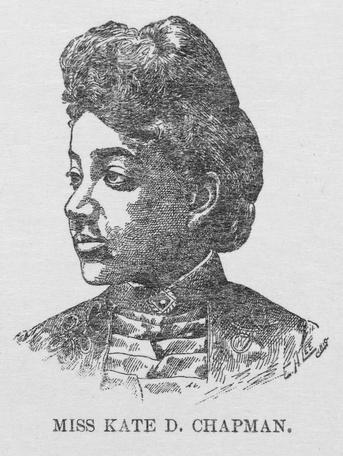
Together, they led St. Paul’s AME Church in Columbia, Missouri, where Katherine held key leadership roles, including president of the conference branch, and actively advanced missionary and educational initiatives.
A prominent voice in national Black women’s organizations, Tillman chaired the Ways and Means executive committee of the National Association of Colored Women, advocating for Christian morality as essential to racial uplift and full citizenship.
Her writings—including Afro-American Poets and Their Verse (1898), Recitations (1902), Paying Professions for Colored Girls (1907), and The Spirit of Allen (1922)— reflected the ethos of Wilberforce University, emphasizing religious devotion, intellectual achievement, and social responsibility. Her 1900 poem “The Highest Life,” published in the Christian Recorder, encapsulates the ideals of faith-driven service that both she and her alma mater upheld.
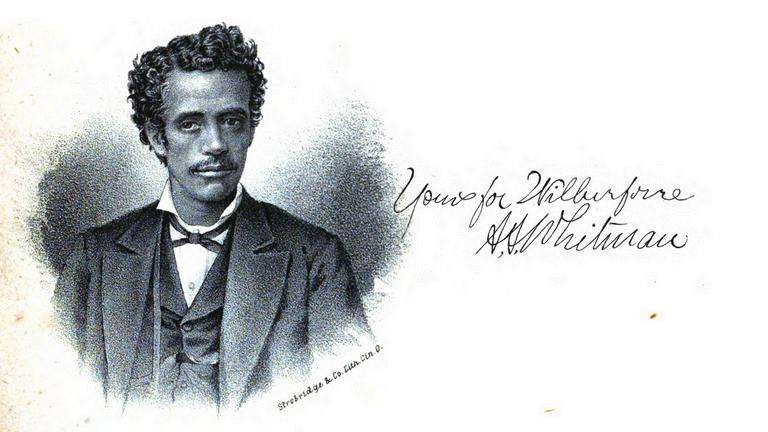
Albery Allson Whitman
Albery Allson Whitman was a distinguished African American poet, minister, and orator whose life and work embodied the complexities and aspirations of the postEmancipation era. Born into slavery, Whitman’s remarkable journey from bondage to intellectual prominence is emblematic of the transformative power of education, particularly as cultivated within historically Black institutions such as Wilberforce University.
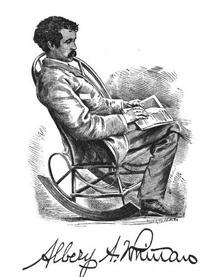
Whitman’s academic tenure at Wilberforce University was foundational in shaping his literary and rhetorical abilities. The university’s rigorous curriculum and commitment to the advancement of African American intellectual and cultural life provided Whitman with the tools to develop his voice as a poet and public speaker. This education empowered him to articulate the experiences and struggles of African Americans during Reconstruction and beyond.
John Anderson Lankford Architect
John Anderson Lankford was a pioneering American architect renowned for his historic distinction as the first professionally licensed African American architect in Virginia in 1922 and subsequently in the District of Columbia in 1924. Often hailed as the “Dean of Black Architecture,” Lankford’s contributions significantly shaped ecclesiastical and institutional architecture within African American communities during the early twentieth century.
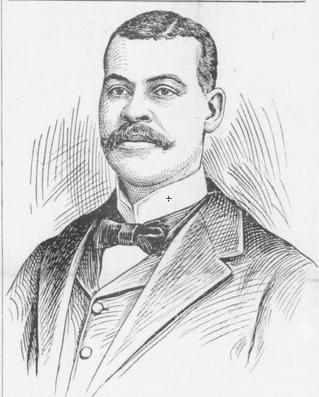
His foundational education at Wilberforce University provided Lankford with critical intellectual and cultural grounding that informed his architectural vision and professional ethos.
Lankford’s academic and formative experiences at Wilberforce equipped him to navigate and transcend the considerable racial barriers in the architectural profession of his era. His distinguished career not only advanced architectural practice but also embodied the university’s broader mission to cultivate African American excellence and professional achievement.
Matthew "Mack" Robinson as the elder brother of baseball legend Jackie Robinson, distinguished himself in his own right as a pioneering athlete whose contributions to track and field and collegiate athletics warrant broader recognition. Robinson first gained national prominence as a sprinter, winning the silver medal in the 200 meters at the 1936 Berlin Olympics, finishing just behind Jesse Owens in a defining moment of athletic and political history.
Following his Olympic success, Robinson pursued higher education at Wilberforce University where he was a standout student-athlete, contributing to the university’s storied legacy of athletic excellence, particularly within the broader context of racial uplift and African American achievement during the Jim Crow era. His tenure at Wilberforce provided not only athletic opportunity but intellectual formation leadership cultivation, and self-determination.
Matthew “Mack” Robinson
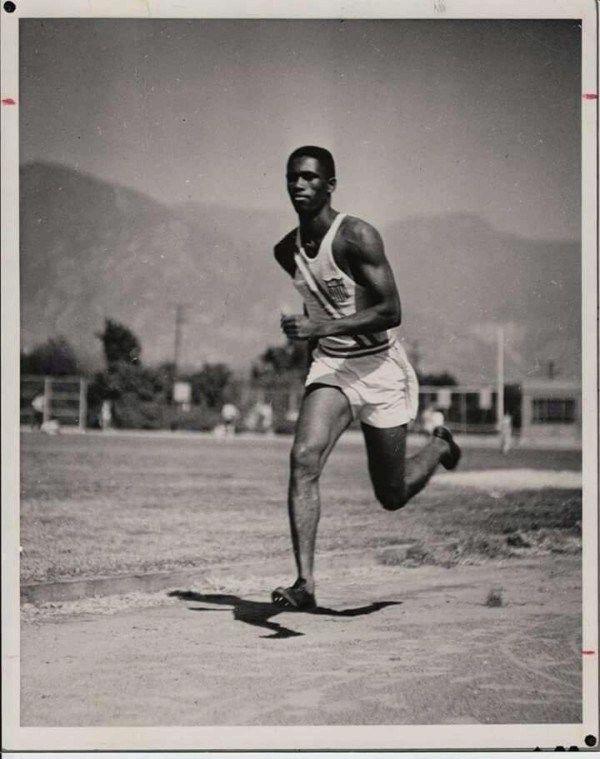

Remey Williams

Learn More
RecordingArtist/Producer
Grammy-nominated artist and C/O 2012 Wilberforce University alumnus
Remey Williams is a dynamic force in today’s music scene. Born into a musical legacy as the son of O’Jays bassist Jimmy Williams, Remey discovered his passion for music at just 10 years old. From church stages in Camden, New Jersey, to touring internationally with artists like Summer Walker and Ruth B., his journey is a testament to resilience, talent, and purpose. As a singer, songwriter, producer, and drummer, Remey continues to captivate audiences with music that’s not just heard but deeply felt.
Attorney Demetrius Caiphus Newton
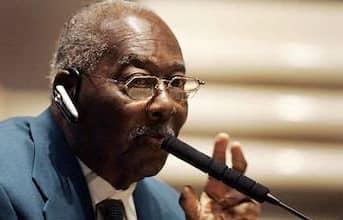
Demetrius Caiphus Newton was a formidable American civil rights attorney, legislator, and trailblazing political leader whose foundational academic experience at Wilberforce University, a pioneering Historically Black College and University (HBCU) in Ohio, played a critical role in shaping his lifelong commitment to racial justice, public service, and legal advocacy.
Newton matriculated at Wilberforce University during a period when the institution stood as a bastion of Black intellectual life and moral formation, grounded in the traditions of the African Methodist Episcopal (AME) Church. At Wilberforce, Newton encountered a rigorous liberal arts curriculum and a vibrant culture of civic engagement that was instrumental in cultivating his passion for law and civil rights..
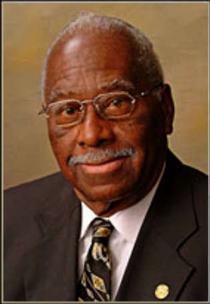

James Dudley
James Benson Dudley served as President of North Carolina Agricultural and Technical State University from 1896 until his death in 1925, guiding the institution through a critical period of growth and development. A distinguished alumnus of Wilberforce University, Dudley’s academic formation at Wilberforce, profoundly influenced his educational philosophy and leadership style.
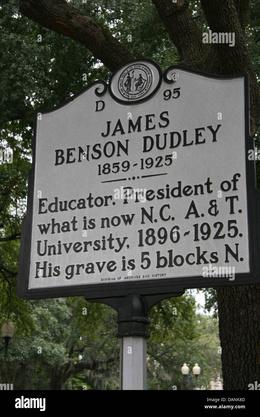
His tenure provided him with a rigorous foundation in both pedagogy and administration, equipping him to advance the cause of African American higher education in the postReconstruction South.
Rev. Dr. Mary G. Evans
Rev. Dr. Mary G. Evans (1891–1966) was a trailblazing African American Christian minister, educator, and civic leader whose ministry and academic accomplishments significantly shaped the religious and social landscape of the 20th-century Black church. She is most renowned for her long and transformative tenure as pastor of Cosmopolitan Community Church in Chicago. Under her leadership, the church became a center for spiritual development, a hub for social service, education, and community empowerment.
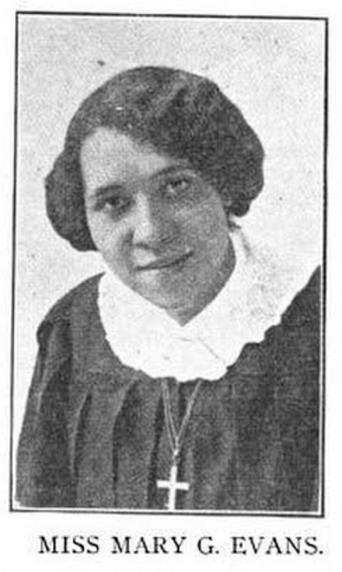
Educator, Pastor, Activist
Central to Evans’s groundbreaking religious vocation was her academic formation at Wilberforce University. Wilberforce played a decisive role in preparing Evans for both ecclesiastical leadership and intellectual engagement within the African Methodist Episcopal (AME) Church. In a historic milestone, Mary G. Evans became the first woman to be awarded the Doctor of Divinity degree from Wilberforce University, a rare and significant achievement in an era when female ordination and leadership within mainline denominations especially among African Americans —remained contentious and limited.
AmericanPolitician Shontel Monique Brown
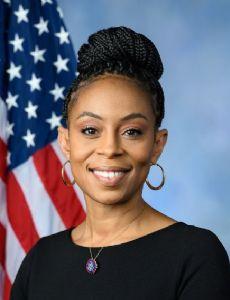

Congresswoman Shontel M. Brown is a relentless public servant who is committed to delivering results for the people of Ohio’s Eleventh Congressional District.
She was first elected to the House of Representatives in 2021 and was sworn in on November 4, 2021. Her top priorities are securing federal funds for our region, defending the benefits her constituents rely on, and advancing legislation that helps working people in Ohio, of all backgrounds, live a better life. Congresswoman Brown is a proud member of the Congressional Black Caucus, and in office she has authored bills to close the racial health gap, strengthen anti-discrimination laws, and expand opportunity for Black Americans.
Benjamin Franklin Lee
Educator,Bishop
Benjamin Franklin Lee (1841–1926) was a prominent religious leader, educator, editor, and bishop in the African Methodist Episcopal (AME) Church whose career exemplified the interconnected rise of Black religious, intellectual, and institutional authority in post-Civil War America.
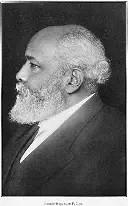
As president, Lee emphasized a curriculum rooted in classical education, moral philosophy, and theological rigor, fostering the intellectual self-determination of newly emancipated African Americans in an era of Reconstruction backlash and intensifying segregation.

His enduring legacy is particularly associated with Wilberforce University, where he served as president from 1876 to 1884—a pivotal period in the institution’s development as a leading center of African American higher education. Wilberforce University, established in 1856 and restructured under AME Church governance following the Civil War, became both a religious and academic stronghold for the Black community. Lee's presidency came at a time when Wilberforce sought to expand its influence beyond the pulpit, preparing African Americans not only for religious leadership but for civic, scholarly, and professional life.

KaJéza Hawkins
KaJéza joined the 2 NEWS team as a Multimedia Journalist in December 2022, before she became a Weekend Anchor in October 2023.
KaJéza is a Gem City native, born and raised in West Dayton, where she attended Dayton Public Schools until 5th grade before she went to and graduated from the Dayton Early College Academy.

She received her bachelors degree in Mass Media Communication from Wilberforce University. During her time in college, she was crowned the 93rd Miss Wilberforce University and spent time advocating for the United Negro College Fund. KaJéza is a member of Alpha Kappa Alpha Sorority, Incorporated.Her journalism career began with several internships, one in Dayton and another Raleigh, NC.
Zelia Bell Page Educator
Zelia Ball Page was a pioneering African American educator whose contributions to Black education in the postbellum United States reflect the broader intellectual and institutional development of African American communities in the late 19th and early 20th centuries. Born free in Ohio, Page was among the early generation of African American women to pursue higher education during Reconstruction.
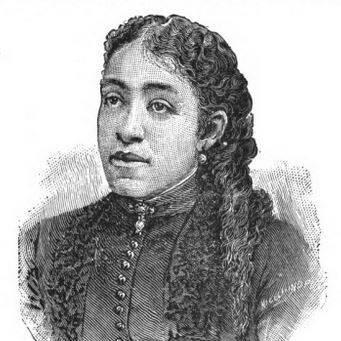
She attended Wilberforce University in Wilberforce, Ohio—an institution that was singular in its mission to cultivate African American leadership through Christian moral education and rigorous intellectual training. Wilberforce, the first college to be owned and operated by African Americans, played a formative role in shaping Page’s professional and moral vision. It provided an environment in which women like her could access liberal education and prepare for roles as educators, missionaries, and civic leaders. Page's education at Wilberforce reflected the institution’s commitment to uplifting the race through the twin pillars of learning and service, particularly in the realm of educational work in the South and emerging Western territories.

Gaines-Sheltonattended WilberforceUniversityinOhioand graduatedin1895
Ruth Gaines-Shelton
Ruth Ada Gaines-Shelton was an African American playwright, and cultural contributor to the Harlem Renaissance. Her work offered incisive social commentary on African American religious and communal life. Best known for her 1925 allegorical comedy The Church Fight, Gaines-Shelton used satire and symbolic characterization to critique intra-racial tensions and class divisions within Black church communities, signaling a sophisticated grasp of both dramaturgy and social critique.
Gaines-Shelton was among a generation of African American intellectuals shaped by the theological, classical, and liberal arts curriculum of the historically Black institution. At Wilberforce, she was immersed in a rigorous academic environment that emphasized moral leadership, race uplift, and expressive culture. This intellectual formation laid the foundation for her dual commitments to education and the arts.
Theophilus Steward
Educator and clergyman

Theophilus Gould "T.G." Steward, a distinguished alumnus of Wilberforce University, was a prominent author, educator, and clergyman whose career advanced African American religious, educational, and military history. His formative education at Wilberforce a leading institution in the intellectual and spiritual development of Black leaders—shaped his enduring commitment to service.
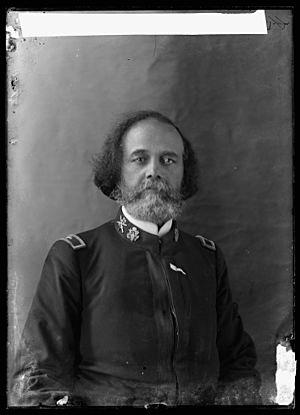
Steward’s tenure as chaplain with the 25th U.S. Colored Infantry highlighted the intersection of faith and resilience in post-Civil War military life.
Through his scholarship, ministry in the African Methodist Episcopal Church, and advocacy for education, Steward embodied Wilberforce’s mission to equip African Americans for leadership in a racially unjust society.
Dorothy Vaughan
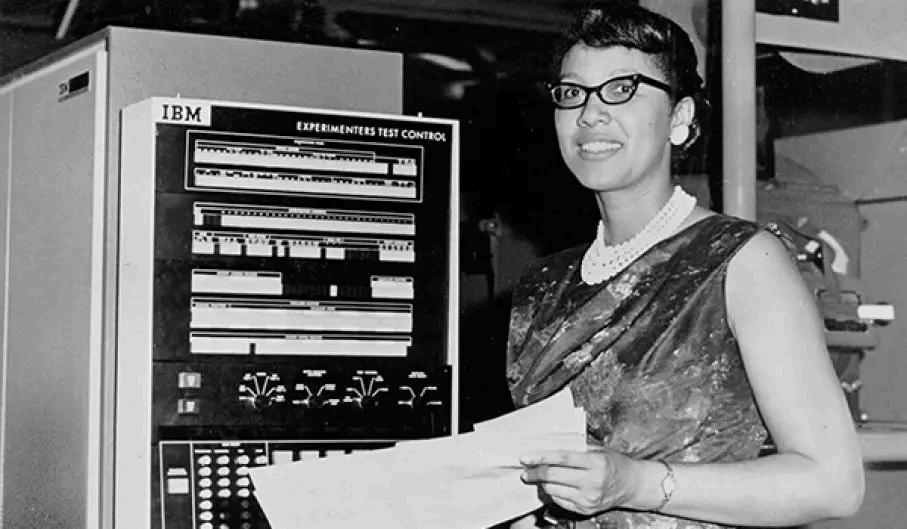
Mathematician,STEMTrailblazer
Dorothy Jean Johnson Vaughan was an American mathematician and human computer who worked for the National Advisory Committee for Aeronautics (NACA), and NASA, at Langley Research Center in Hampton, Virginia. Dorothy Johnson graduated from Wilberforce University in 1929 with a B.A. in Mathematics. In 1949, she became acting supervisor of the West Area Computers, the first African-American woman to receive a promotion and supervise a group of staff at the center. As a trailblazer of STEM before STEM became widely known, Dorothy Vaughan was a pivotal character featured in the riveting 2016 movie, “Hidden Figures.”
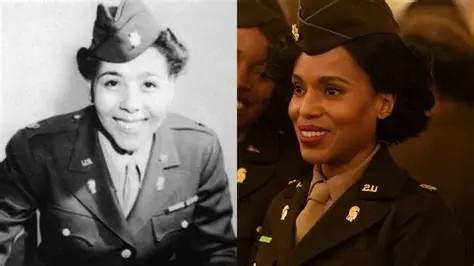
LTC Charity Adams Early
Lieutenant Colonel Charity Adams Early (1918–2002) was the first African-American woman to be an officer in the Women's Army Auxiliary Corps (later WACS) and was the commanding officer of the first battalion of AfricanAmerican women to serve overseas during World War II. Wilberforce graduate, Adams was the highest ranking African-American woman in the army by the completion of the war.
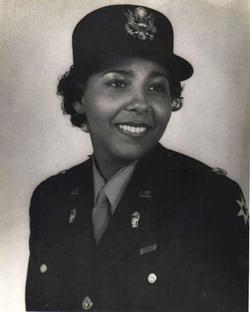
Eight decades after the end of World War II and the heroic endeavors of the 6888, the only Women’s Army Corps unit of color, their story is being appreciated in new and awe-inspiring ways — most recently with a Congressional Gold Medal and movie 6888 portraying her character by actress Kerry Washington, released in 2024.
John Robert Fox

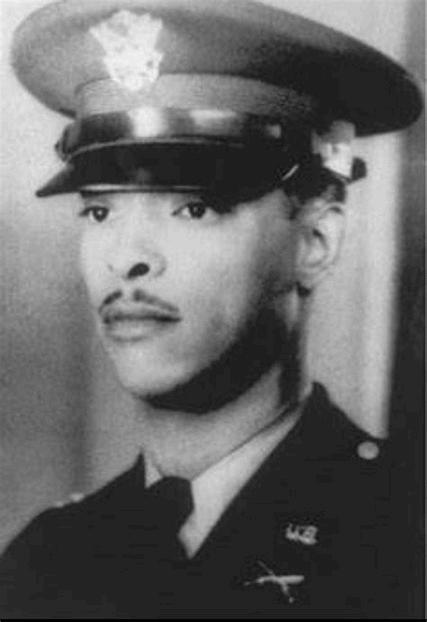
Military WarHero
After John Robert Fox matriculated at Wilberforce University, he completed a Bachelor of Science in engineering and graduated in the spring of 1940, commissioning into the U.S. Army as a second lieutenant through the institution’s ROTC program.
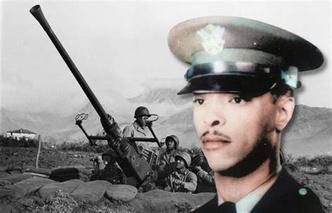
He was a United States Army first lieutenant who was killed in action after calling in artillery fire on the enemy during World War II.
In 1997, Lieutenant John R. Fox was posthumously awarded the Medal of Honor—the United States’ highest military decoration for valor—in recognition of his extraordinary heroism on December 26, 1944, near Sommocolonia, Italy.
In the midst of a German assault, Fox deliberately called artillery fire on his own position, fully aware that it had been overrun by enemy forces. In a calculated act of self-sacrifice intended to stall the German advance he protected retreating Allied units. Fox’s award is testament to his bravery and heroism.
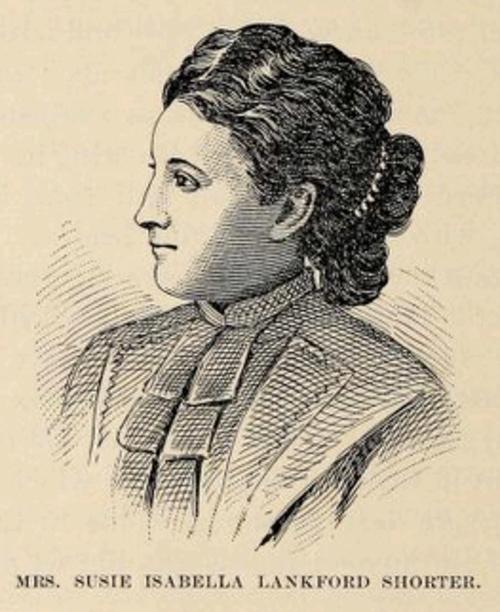
Susie Isabel Lankford Shorter
A distinguished African American educator, philanthropist, and writer, Shorter’s life and work were deeply informed by her years at Wilberforce University in Ohio. A product of one of the earliest historically Black institutions of higher learning in the United States, Shorter embodied the ethos of moral uplift, educational empowerment, and civic responsibility that Wilberforce instilled in its students.
At Wilberforce, Shorter received a comprehensive liberal arts education shaped by the institution’s strong religious and classical foundations, rooted in the mission of the African Methodist Episcopal (AME) Church. Her academic experience positioned her among a growing class of educated African American women committed to community development and cultural leadership. As a student, she was exposed to a network of reformist thought, Christian moral philosophy, and racial solidarity, all of which informed her later endeavors in education and social service.

FRANK BENJAMIN FOSTER
III
Musician
Frank Benjamin Foster III was a distinguished American tenor and soprano saxophonist, flautist, arranger, and composer whose musical career was marked by both innovative artistry and leadership.
A formative period of his education was spent at Wilberforce University, where his early exposure to rigorous musical training laid the groundwork for his subsequent contributions to jazz. Foster gained prominence through his longstanding collaboration with Count Basie and emerged as a respected bandleader beginning in the early 1950s. In recognition of his enduring impact on jazz, Howard University conferred upon him the prestigious Benny Golson Jazz Master Award in 1998, affirming his legacy within the broader canon of American music.
Musician Horace W. Henderson
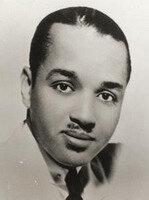
Learn More
Horace W. Henderson, a pivotal figure in early jazz and swing and the younger brother of bandleader Fletcher Henderson, exemplifies the profound influence of Wilberforce University on the formation of African American musical modernism. Horace Henderson arranged for many other jazz musicians of the era. Among his other clients for arrangements were Charlie Barnet, the Casa Loma Orchestra, Tommy Dorsey, Benny Goodman, Earl Hines, and Jimmie Lunceford. His best-known arrangements were of his own "Hot and Anxious" (part of which became the main theme of "In The Mood") and "Christopher Columbus,” of which he was one of the writers (but never received credit).
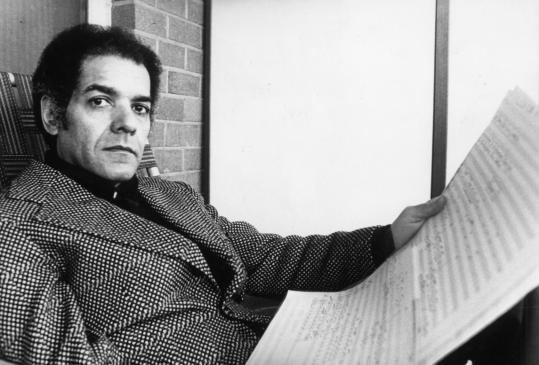
George A. Russell
George Allen Russell was an American jazz pianist, composer, arranger and theorist. He is considered one of the first jazz musicians to contribute to general music theory with a theory of harmony based on jazz rather than European music, in his book Lydian Chromatic Concept of Tonal Organization (1953).
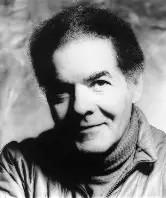
Russell matriculated at Wilberforce University circa 1941, where he was awarded a scholarship to join the institution’s esteemed jazz ensemble, the Collegians. Russell’s tenure at Wilberforce was instrumental in his foundational development, affording him early and rigorous exposure to jazz performance and theoretical frameworks, which profoundly informed his subsequent innovations in jazz composition and theoretical discourse.

Leontyne Price

World Renown Opera Singer
Leontyne Price is a seminal American spinto soprano and the first AfricanAmerican soprano to achieve international operatic
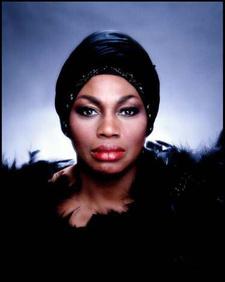
Born in Laurel, Mississippi, Price began her studies at Wilberforce University in Ohio in 1944. Due to administrative restructuring in 1947, the State College of Education and Industrial Arts at Wilberforce became Central State University, from which Price graduated in 1948 with a degree in vocal performance. Her foundational training at Wilberforce was pivotal in shaping her early musical development before advancing to the Juilliard School, where she studied under Florence Kimball. Price’s illustrious career included a long tenure at the Metropolitan Opera beginning in 1961 and her education at Wilberforce University thus represents a critical starting point in the trajectory of one of opera’s most celebrated artists.
William Grant Still
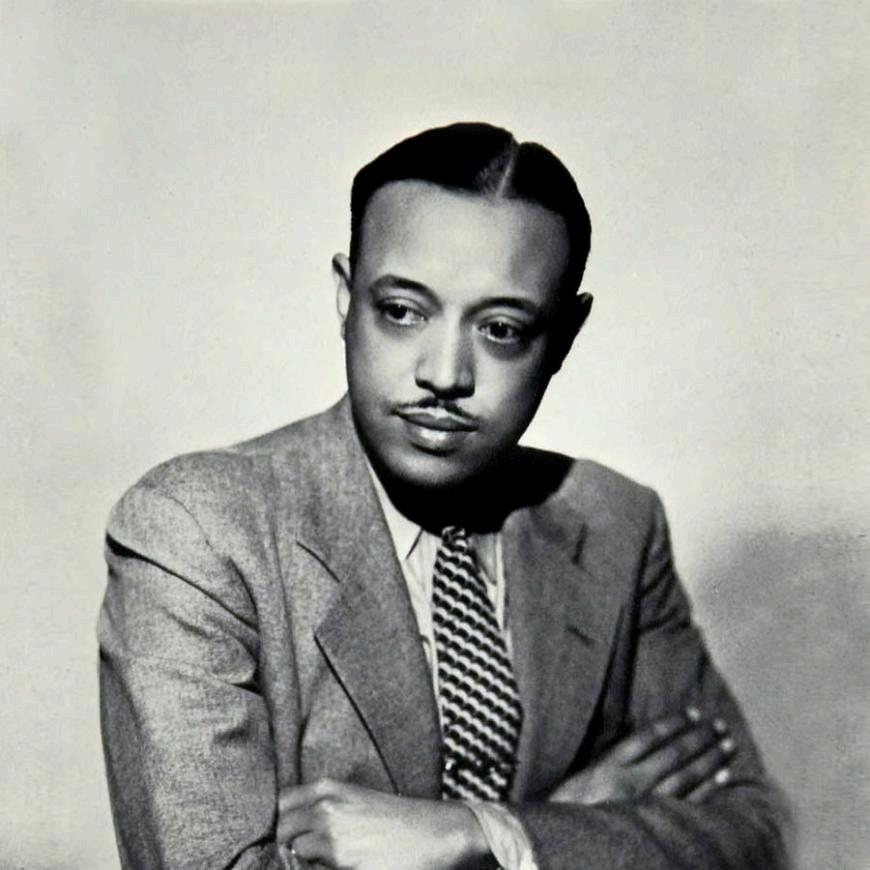
AmericanComposer
William Grant Still, Jr.’s portfolio encompasses nearly two hundred works, including five symphonies, four ballets, nine operas, and an extensive corpus of choral, chamber, and solo music. Born in Mississippi and raised in Little Rock, Arkansas, he studied at Wilberforce University and later the Oberlin Conservatory of Music, where his principal mentors included George Whitefield Chadwick and Edgard Varèse. A central figure of the Harlem Renaissance, Still broke multiple racial and institutional barriers in American classical music. He was the first African American composer to have a symphony performed by a major U.S. orchestra, the first to conduct such an orchestra the Los Angeles Philharmonic at the Hollywood Bowl in 1936 and the first American to have an opera staged by New York City Opera. He was also the first African American composer to have an opera broadcast on national television-an event that marked a transformative moment in American musical and racial history. His pioneering achievements have earned him the enduring title of the 'Dean of African American Composers.’
Hastings Banda
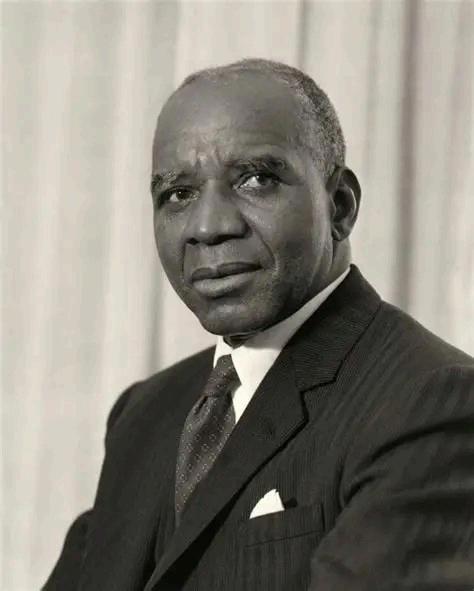
Hastings Kamuzu Banda was a Malawian doctor, politician, and statesman who served as the leader of Malawi from 1964 to 1994. President Banda’s education in the United States began at Wilberforce University.

He held the office of Prime Minister from Malawi’s attainment of independence in 1964 until 1966, during which time the nation functioned as a Commonwealth realm under a constitutional monarchy. Following the adoption of a republican constitution in 1966, he assumed the presidency as the country's inaugural head of state, a position he maintained until his electoral defeat in 1994.
Corbin Coleman
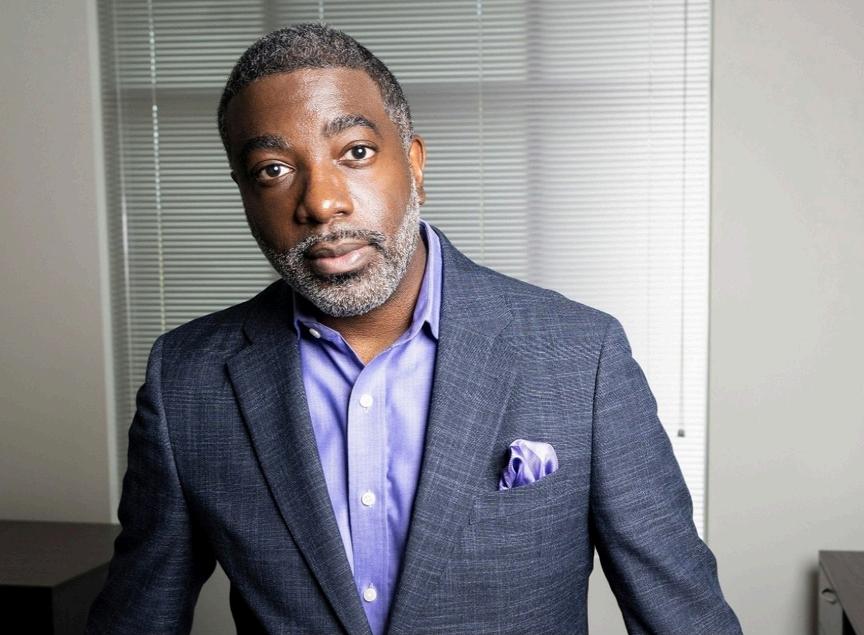
Filmmaker/Entrepreneur
Learn More
Corbin Coleman, proud class of 1998, is a co-founder of 4C Visuals Group, a filmmaking duo that has been creating documentary films exploring the African American experience. Their work has focused on addressing issues such as Black men and mental health within the African American community. Coleman's entrepreneurial spirit and passion for storytelling have led him to venture out on his own, sharing his vision and mission with the world. Award winning and thought provoking films include: My Name Is Peaches: A Film About Womanism, I'm Good Bro: Part II, and I'm Good Bro: Unmasking Black Male Depression.
DelawareGovernorJohnCarneyawardedDr. BeamanwiththehighesthonorasaDelaware citizen,withthe“FirstOrderoftheStateAward.”
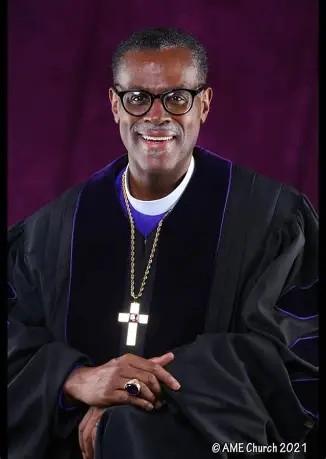
Learn More
Dr. Silvester Scott Beaman
Dr. Silvester Scott Beaman is 139th elected and consecrated Bishop in the African Methodist Episcopal Church. As an alumnus of Payne Theological Seminary, Bishop Beaman additionally holds degrees from Wilberforce University, Boston University, and Richard Wright Theological Seminary.
Dr. Beaman’s pastoral career began in 1985. During this time, Bishop pastored three churches. Major renovations were completed, debts reduced and paid off, over 50 new ministries established, over 2,700 new members taken in. Bishop Beaman has been a 20-year General Board member of the African Methodist Episcopal Church. He is also a member of the Alpha Phi Alpha Fraternity, and Prince Hall Mason.
Dr. Beaman was honored to be asked by President Joseph Biden, a friend for close to 30 years, to offer the benediction at the January 20, 2021, Presidential Inauguration of Joseph R. Biden and Vice President Kamala Harris.
Betty Allen

Trailblazing Mezzo-Soprano
Born in Campbell, Ohio, in 1927, Betty Allen rose from humble beginnings to become one of the first Black opera singers to achieve international acclaim.

Her journey in music began at Wilberforce University) in Xenia, Ohio, where she discovered her passion for singing. While at Wilberforce, she joined the school choir—an experience that shaped her future and introduced her to fellow student and lifelong friend, Leontyne Price.
After graduating, Allen earned a degree in vocal performance from the Hartford School of Music and went on to perform with renowned composers like Leonard Bernstein and Aaron Copland. Though her operatic career was later curtailed by health issues, she became a celebrated voice teacher and arts administrator, serving on the faculties of prestigious institutions and leading the Harlem School of the Arts.
Betty Allen’s legacy is one of resilience, excellence, and advocacy for the arts rooted in the nurturing environment she found at Wilberforce University.
Cynthia Roseberry
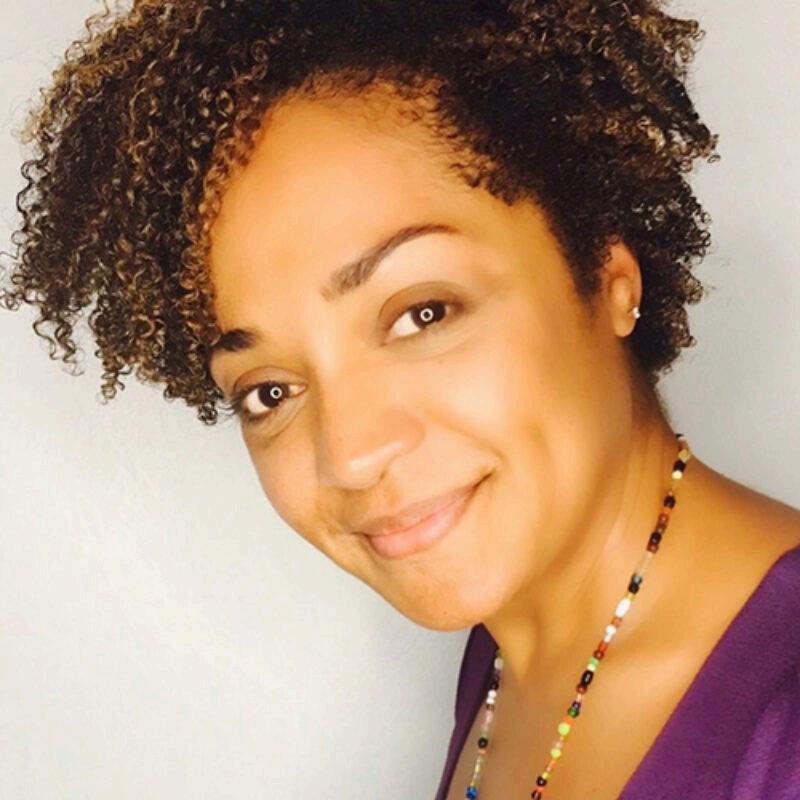
A founding board member of the Georgia Innocence Project, she was the first African- American female president of the Georgia Association of Criminal Defense Lawyers. She received the 2016 COS Humanitarian Award, the 2017 annual service award from the Alpha Alpha Chapter of Phi Beta Sigma Fraternity, Incorporated and the 2017 Champion of Justice Award from the National Association of Criminal Defense Lawyers.Roseberry earned her Bachelor of Science from Wilberforce University in Ohio. She earned her Juris Doctor from Georgia State University College of Law.
Sociologist,Author

William Julius Wilson
William Julius Wilson is a sociologist, known for his research on race and class in the United States. He was born in Derry, Pennsylvania in 1935. He received a BA in Sociology from Wilberforce University in 1958. At Wilberforce, Wilson became interested in urban sociology and race relations. Wilson received a M.A. and Ph.D. in Sociology from Bowling State University and Washington State University respectively.
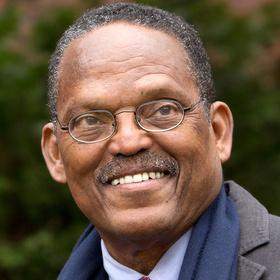
Major Accomplishments include:
Awarded the National Medal of Science in 1998 Macarthur Prize fellow from 1987 to 1992 Served as 80th President of the American Sociological Association Harvard Professor Renown Author
He currently serves as the Lewis P. and Linda L. Geyser University Professor Emeritus at Harvard University.
16th President of Wilberforce University
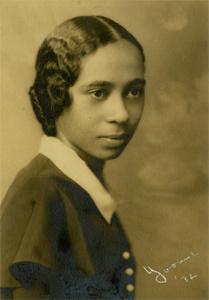
Yvonne WalkerTaylor
Walker-Taylor attended Wilberforce University, Boston University, and the University of Kansas. She began her teaching career as a high school teacher, becoming a college professor in the 1950s. In the 1970s she began serving in an administrative capacity at Wilberforce, first as academic dean then provost of the college.
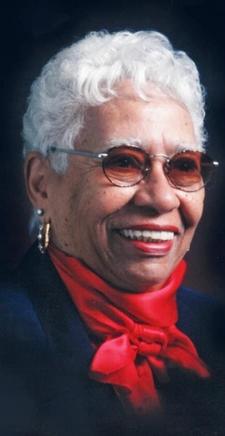
In 1984 Walker-Taylor was named the 16th president of Wilberforce University, becoming the first female African American college president in the United States. She served as president until retiring in 1988.
Walker-Taylor was a member of many community organizations including The Links, the NAACP, and was Golden Soror of Alpha Kappa Alpha sorority. She was active in the African Methodist Episcopal Church serving as choir director and as a Trustee.
Walker-Taylor died on October 25, 2006. She was inducted into the Ohio Women's Hall of Fame in 2000.
Jenkins
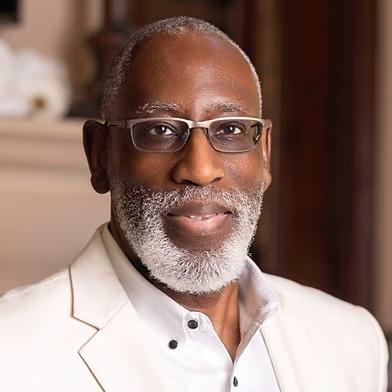
Nate Jenkins, a retired Senior Executive (ExxonMobil) with extensive experience in Corporate America, Business Operations, Finance and Education. Nate is currently serving in Higher Education and is Chairman of Wilberforce University Board of Trustees. Wilberforce University is the nation’s oldest private HBCU, located in Ohio. Nate is a Business Consultant, an inclusive, innovative and strategically focused leader astute at delivering business value. Mr. Jenkins utilizes his considerable experience and his finely-honed leadership to help lead the Foundation.
Dr. Coleman Williams graduated with honors in English from Wilberforce University in 1938.
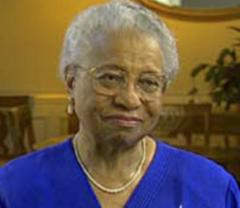
Dr. Jamye Coleman Williams
Her distinguished career spanned decades as a professor, scholar, and leader in the African Methodist Episcopal Church. Williams broke barriers as the first woman to hold a general office in the A.M.E. Church and served as editor of The AME Church Review. Her academic contributions include pioneering rhetorical studies focused on African American voices, notably her dissertation on Thurgood Marshall’s Supreme Court arguments. A recipient of the NAACP Presidential Award, Dr. Williams remained rooted in legacy and committed to excellence values she first cultivated at Wilberforce.


Attribution Statement
The biographical summaries and historical analyses presented on this page draw from a range of scholarly sources, archival materials, and institutional histories. Specific credit is due to the foundational role of Wilberforce University in the intellectual, artistic, and professional development of the individuals profiled herein. Each figure’s narrative reflects both individual achievement and the broader legacy of historically Black colleges and universities in advancing African American leadership, culture, and thought.
Additionally, The information compiled on this page incorporates content, insights, and data sourced from multiple online platforms and digital archives. These include, but are not limited to, educational institutions, historical databases, public domain resources, cultural heritage websites, and official biographies. All sources have been used in accordance with applicable terms of use, copyright guidelines, and fair use principles for educational and scholarly purposes.
Credit is extended to the original authors, curators, and institutions responsible for the digital preservation and dissemination of the historical and biographical materials referenced. Where direct quotations or unique insights are included, source attribution has been provided inline or in footnotes as appropriate.
This work seeks to honor and accurately represent the contributions of historically significant individuals while acknowledging the vital role of online repositories in preserving and sharing knowledge.
Site attributions: wikipedia.org, edurank.org, telegr.ph, npr.uk.org, julliardstore.com, jazzmusicarchives.com, blogs.libraries.wright.edu, en.Wikipedia.org, blackwomensreligiousactivism.org, pinterest.com, aaregistry.org, kids.kiddle.org, birminghamtimes.com, lbsbaltimore.com, wnky.org, kcblackhistory.org




